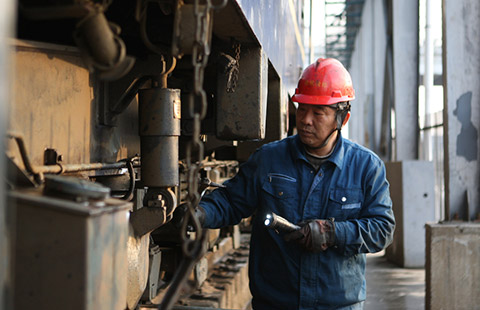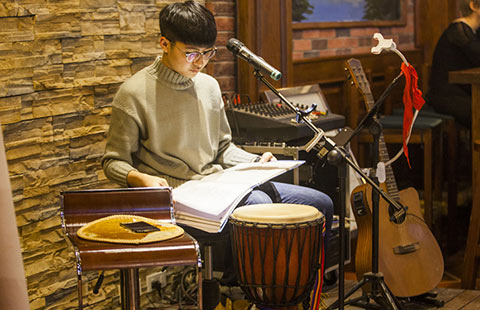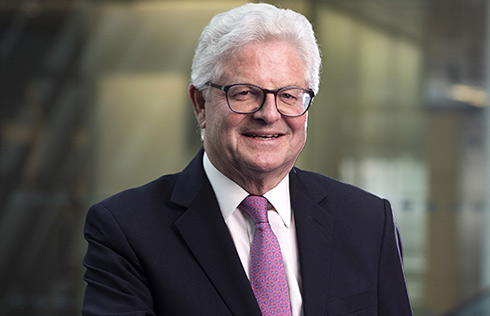Full text: Report on China's central, local budgets
The year 2012 was the last year of the term of this government. During the past five years, we fully implemented the policy decisions and plans of the CPC Central Committee and the State Council, strived to improve the structure of government spending, advanced reform of the fiscal and tax systems, strengthened scientific management of public finances, and made good use of its functions and role, thereby spurring steady, sound economic and social development and also giving the development and reform of public finance a new appearance.
Public finance played an effective role in macro-control. In response to the global financial crisis, finance departments comprehensively implemented a proactive fiscal policy, employed a full range of macro-control tools, and adopted a variety of well-targeted policies and measures. When formulating policies, we took a holistic and balanced approach in order to not only bolster domestic demand, particularly consumer demand, and strive to expand exports, but to increase effective supply by raising overall agricultural production capacity and supporting enterprises in developing production. We focused on imposing strong short-term macro-control but also paid attention to enhancing the sustainability of the country's development, thereby promoting steady and rapid economic development and continued improvement in people's lives. We managed public finances more scientifically, implemented policies with the proper force and pace, and kept China's deficit-to-GDP and debt-to-GDP ratios at safe levels. We strengthened supervision of local government debts, effectively managed and controlled risks, and maintained the sound operation and sustainability of public finance. From 2008 to 2012, government revenue increased at an average annual rate of 18% and totaled approximately 43.4 trillion yuan for the five-year period, 26.42 trillion yuan more than the total for the preceding five years, and government expenditure increased at an average annual rate of 20.4% and totaled approximately 46.37 trillion yuan for the five-year period, 28.65 trillion yuan more than the previous five-year period.
Remarkable progress was achieved in maintaining and improving quality of life. Government spending on education increased to 4% of GDP in 2012 from 3.12% in 2007, which has greatly promoted education reform and development and led to the formation of an institutional basis for providing schooling to students from poor families. Government spending on medical and health care nationwide grew at an average annual rate of 29.3% and totaled 2.52 trillion yuan over the past five years. Significant progress was made in reforming the pharmaceutical and health care systems, and a medical insurance system that covers the whole population is emerging. Construction of government-subsidized housing picked up speed, with more than 18 million units of government-subsidized urban housing built and housing in run-down urban areas renovated nationwide over the past five years, making government-subsidized housing accessible to 12.5% of the country's urban households in 2012. The dilapidated houses of 9 million rural households were also renovated. We extended the old-age insurance system to all non-working urban residents and the rural population, with 130 million people aged 60 and over drawing a monthly pension. Greater support was lent to employment and business start-ups, a new social aid system was basically put in place, and the mechanism to increase social aid and social security benefits when consumer prices rise began to take shape. Steady progress was achieved in making public cultural facilities open to the public free of charge, development of the public cultural service system was accelerated, reform of the cultural administrative system proceeded across the board, and cultural programs and industries enjoyed sound development. The government successfully completed recovery and reconstruction work following the massive Wenchuan earthquake and major mudslide in Zhugqu; gave strong support to post-disaster recovery and rebuilding work following the Yushu earthquake; assisted in the fight against other major natural disasters; and ensured basic living conditions for the victims of disasters. Central government spending on maintaining and improving quality of life grew at an average annual rate of 21.1% and totaled 16.89 trillion yuan for the five-year period, which accounted for over two-thirds of total central government spending.
Impetus was given to adjusting the economic structure and balancing regional development. We strongly supported scientific and technological innovation; optimized the structure of government spending on science and technology, with the focus on supporting basic research and research on cutting-edge and generic technologies; and encouraged faster implementation of major national science and technology projects. We increased fiscal and tax policy support to strengthen agriculture, benefit farmers, and enrich rural areas. Over the past five years, central government spending on agriculture, rural areas, and farmers increased at an average annual rate of 23.5% to reach a total of 4.47 trillion yuan for the period, 2.92 trillion yuan more than the previous five-year period, which helped to balance urban and rural development. We supported the implementation of the plan for adjusting and reinvigorating ten key industries, helped accelerate the development of strategic emerging industries, established a sound fiscal and tax policy system to support the service sector, and introduced and improved fiscal and tax policies to promote sound development of small and medium-sized enterprises, especially small and micro-businesses. Solid progress was made in conserving energy, reducing emissions, and protecting the ecological environment, with government spending in this area totaling 1.14 trillion yuan nationwide over the past five years, an average annual increase of 24.1%. Sound mechanisms for subsidizing and rewarding grassland ecological conservation were also put in place. Transfer payments were constantly increased, with payments from the central to local governments growing at an average annual rate of 27.1% from 1.4 trillion yuan in 2007 to 4.03 trillion yuan in 2012. These funds mainly went to the central and western regions, ethnic minority areas, old revolutionary base areas, poor areas, main grain-producing areas, and key ecological zones. Following the redistribution of government funds through central government transfer payments, per capita government expenditure rose significantly in the central and western regions. This redistribution has strongly promoted the equalization of basic public services between regions, with the eastern region giving strong support to the development of the two regions.
Fiscal and tax reforms continued to deepen. We made substantial progress in establishing fiscal and tax systems and mechanisms conducive to developing scientifically. We improved the transfer payment structure to raise the share of general transfer payments from 50.8% of total transfer payments in 2007 to 53.3% in 2012. We established a mechanism to ensure basic funding for all county-level governments and deepened the reform to place county finances directly under the management of provincial-level governments and township finances under the management of county governments. The government budget system improved as we eliminated all off-budget funds and placed all government revenue and expenditure under budgetary management. We improved the way surplus revenue is used, and established a sound budget stabilization fund system. We fully implemented the reform to establish a departmental budget system, and extended the coverage of the centralized treasury collection and payment system to all levels of departments at and above the county level that prepare their own budgets and to those with the right conditions at the township level. We made significant headway in VAT reform and in expanding the scope of the VAT system, improved the excise tax system over time, smoothly reformed taxes and fees related to refined oil products, made steady progress in reforming property and resource taxes, unified the tax systems for domestic and overseas enterprises, constantly improved the personal income tax system, and further standardized income distribution between the government on the one hand and enterprises and individuals on the other.
Fiscal management steadily improved. Basic work on fiscal management and its development at the primary level of government intensified, and overall progress was achieved in making fiscal management more scientific and meticulous. The new Law on Corporate Income Tax and Law on Vehicle and Vessel Tax came into force, and progress was achieved in revising the Budget Law. Local government budgets were made significantly more complete and their implementation more timely, balanced, effective, and secure. Work on introducing performance-based budget management moved forward in an orderly manner, and government budgets and final accounts were released on a regular basis and according to institutional procedures. Important headway was made in requiring government departments to release information regarding their spending on official overseas trips, official vehicles, and official hospitality. We verified all the debts of local governments and obtained a clear picture of their debt position, introduced policies and measures to strengthen debt management by local government financing companies, and stayed vigilant against financial risks in public finance. We carried out the work of issuing bonds for local governments with the approval of the State Council in an orderly manner, worked to clear the outstanding debts of local governments to reduce their burden, and gradually improved oversight mechanisms that cover all government-managed funds and all stages of fiscal operations.
The achievements made in fiscal work over the past five years were the result of the scientific policymaking and correct leadership of the Party Central Committee and the State Council, increased oversight and effective guidance of the NPC and its deputies and the CPPCC National Committee and its members, and concerted, strenuous efforts of all regions and departments and the people of all of China's ethnic groups. At the same time, we are soberly aware of the following problems and shortcomings in our fiscal work: Progress in fiscal and taxation legislation needs to be accelerated, as tax legislation is still in its infancy. Fiscal and tax policies need to play a bigger role in promoting change in the growth model and regulating income distribution. Reform of the fiscal system needs to be accelerated in order to clearly define powers and corresponding spending responsibilities among different levels of government. The system of transfer payments requires improvement, as there are currently too many items funded by special transfer payments. The structure of the tax system is not sufficiently balanced, and the development of local tax systems has fallen behind schedule. The excessive non-tax revenues collected by some local governments are having an adverse effect on the stability of government receipts. Government funds are not used efficiently in some localities and organizations that are prone to extravagance and waste, which requires performance-based budget management to be introduced more quickly. Some localities are under immense pressure to repay their debts, and the potential risks involved must not be overlooked. We must take these problems seriously and adopt effective measures to solve them.

















